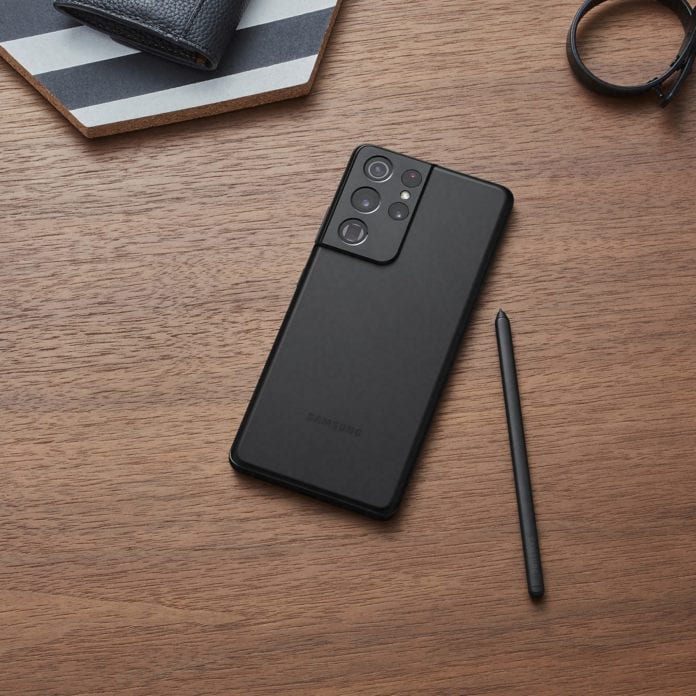The Samsung Galaxy S21 Ultra supports enhanced intelligent Wi-Fi, OpenRoaming and Wi-Fi 6E
Samsung’s new Galaxy S21 Ultra, announced in January, has a number of features aimed at eliminating a particularly annoying pain point for consumers: The transition between Wi-Fi and cellular and vice versa.
“Our solution to that inconvenience is enhanced intelligent Wi-Fi,” Jong-Mu Choi, vice president and head of the convergence R&D group at Samsung Electronics, told RCR Wireless News. “It analyzes and predicts the user behavior, as well as the network traffic patterns, to ensure seamless connectivity.”
The enhanced intelligent Wi-Fi feature predicts the bandwidth that will be required by network applications being used, and then it determines if there is available bandwidth in either the Wi-Fi or the cellular network.
“If it finds that the Wi-Fi network has a weak signal,” added Choi, “the intelligent Wi-Fi adjusts the timing for transitioning to the cellular network.”
This feature can also help with an application that many of us have become intimately familiar with during the coronavirus pandemic: Real-time video conferencing.
“When you change the network barrier in real-time applications — like video conferencing —it can cause a connection to drop,” Choi said. “So, the device runs an abstraction of the Wi-Fi and cellular barrier, so that the upper layers do not perceive the transition between the barriers, which means that during streaming, you can transition to a different barrier and the connection will not drop.”
Similarly, the device supports OpenRoaming, a global wireless industry standard that is owned and managed by the Wireless Broadband Alliance (WBA). OpenRoaming, developed by Cisco, allows seamless Wi-Fi onboarding and is built upon a set of standards and guidelines developed by the WBA and Wi-Fi Alliance. A user can join any network managed by any provider within the established trusted federation of providers. The network is then able to automatically authenticate devices by using established identity providers, such as a service provider, device manufacturer, cloud ID or even loyalty memberships.
Finally, the Galaxy S21 Ultra is also one of the first smartphones to support Wi-Fi 6E, which allows for unlicensed Wi-Fi use on the 6GHz band.
“Wi-Fi 6 will be very helpful for solving problems from the consumer perspective. In Korea, specifically, there are a lot of crowded places with hotspots like subways and shopping malls, which means that all of the devices are competing for Wi-Fi signals. 6E there will be less congestion,” said Choi. “By becoming one of the first devices to support Wi-Fi 6E, I believe that we will be able to have a positive impact on the overall adoption [of the technology].”

